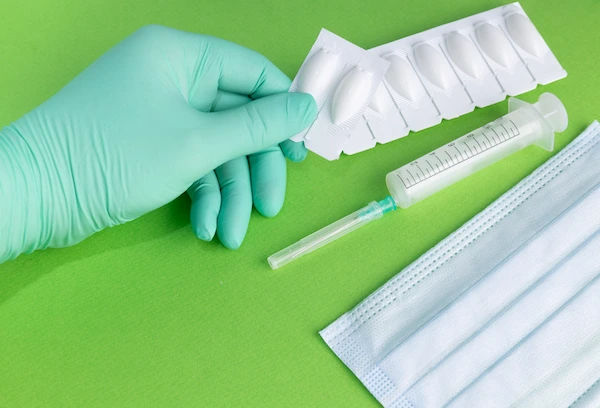- female
- 4 Years
- 22/01/2025
I'm really worried about my 4-month-old. After every feeding, they seem to have loose motion, and I've noticed it's a yellowish color. Plus, theres some coughing happening. Could this be something serious? What can I do to help my baby?
Answered by 1 Apollo Doctors
Your baby may have gastroenteritis, which is inflammation of the stomach and intestines. For loose motions, you can give your baby oral rehydration solution (ORS) to prevent dehydration. You can also give probiotics like Enterogermina to help restore the balance of good bacteria in the gut. If the symptoms persist or worsen, please consult a pediatrician for further evaluation and management.
Dr. Ranjith Suggests...
Consult a Paediatrician
Answered 04/07/2025
0
0

More Paediatrics Health Queries
View allI'm a bit worried about something and could really use your advice. My baby is 4 months old, and I'm breastfeeding her. I've eaten a lot of sweets lately and I'm concerned it might cause worms in my stomach. Can I take a Bendex tablet while breastfeeding?
Potential Effects of Frequent Masturbation_ 1. _Physical effects_: Frequent masturbation can lead to: - Fatigue - Muscle strain (including back muscles) - Decreased testosterone levels (temporarily) 2. _Psychological effects_: Excessive masturbation can contribute to: - Guilt or shame - Anxiety or stress - Decreased motivation or productivity - Potential negative impact on relationships _Back Pain and Masturbation_ 1. _Possible connection_: Frequent masturbation can lead to muscle strain, including back muscles, which may contribute to back pain. 2. _Other potential causes_: Back pain can have various causes, such as: - Poor posture - Muscle imbalances - Herniated discs - Underlying medical conditions _Recommendations_ 1. _Moderation is key_: Masturbation, in moderation, is a normal and healthy part of human sexuality. 2. _Maintain a balanced lifestyle_: Engage in regular exercise, practice good posture, and manage stress to reduce the risk of back pain. 3. _Consult a healthcare professional_: If you experience persistent or severe back pain, consult a healthcare professional to rule out underlying medical conditions. _Remember_ 1. _Masturbation is not the sole cause of back pain_: There are often multiple factors contributing to back pain. 2. _A balanced lifestyle and moderation are essential_: Enjoy masturbation as part of a healthy and balanced lifestyle.
Answered by 1 Apollo Doctors
I'm a bit anxious about my baby boy who's almost 4 months old. He's been having frequent small bowel movements, and I've been giving him Bifilac sachets to help. Is it okay to keep using Bifilac regularly? Is it safe for him?
While Bifilac is generally considered safe for infants, long-term or repeated use without medical supervision can lead to an imbalance of gut flora or dependency on probiotics; consult your pediatrician before continuing Bifilac sachets, as they may recommend alternative probiotics, dietary changes, or investigate underlying causes of frequent small motions
Answered by 1 Apollo Doctors
My baby's lips have started turning a blackish color over the last couple of days. She's eating normally, and everything seems fine in that department. However, she's passing liquid stool, and I'm concerned it might be related to the heat here. Could you provide some guidance on what might be happening?
It's good to hear that your baby is feeding well. Blackish lips can sometimes be due to dehydration or a lack of oxygen, but its important to monitor if this persists. The liquid stools could indeed be due to the heat; keep her well-hydrated, and if the symptoms continue or worsen, Id recommend a pediatricians consultation for a thorough checkup.
Answered by 1 Apollo Doctors
Disclaimer: Answers on Apollo 247 are not intended to replace your doctor advice. Always seek help of a professional doctor in case of an medical emergency or ailment.





